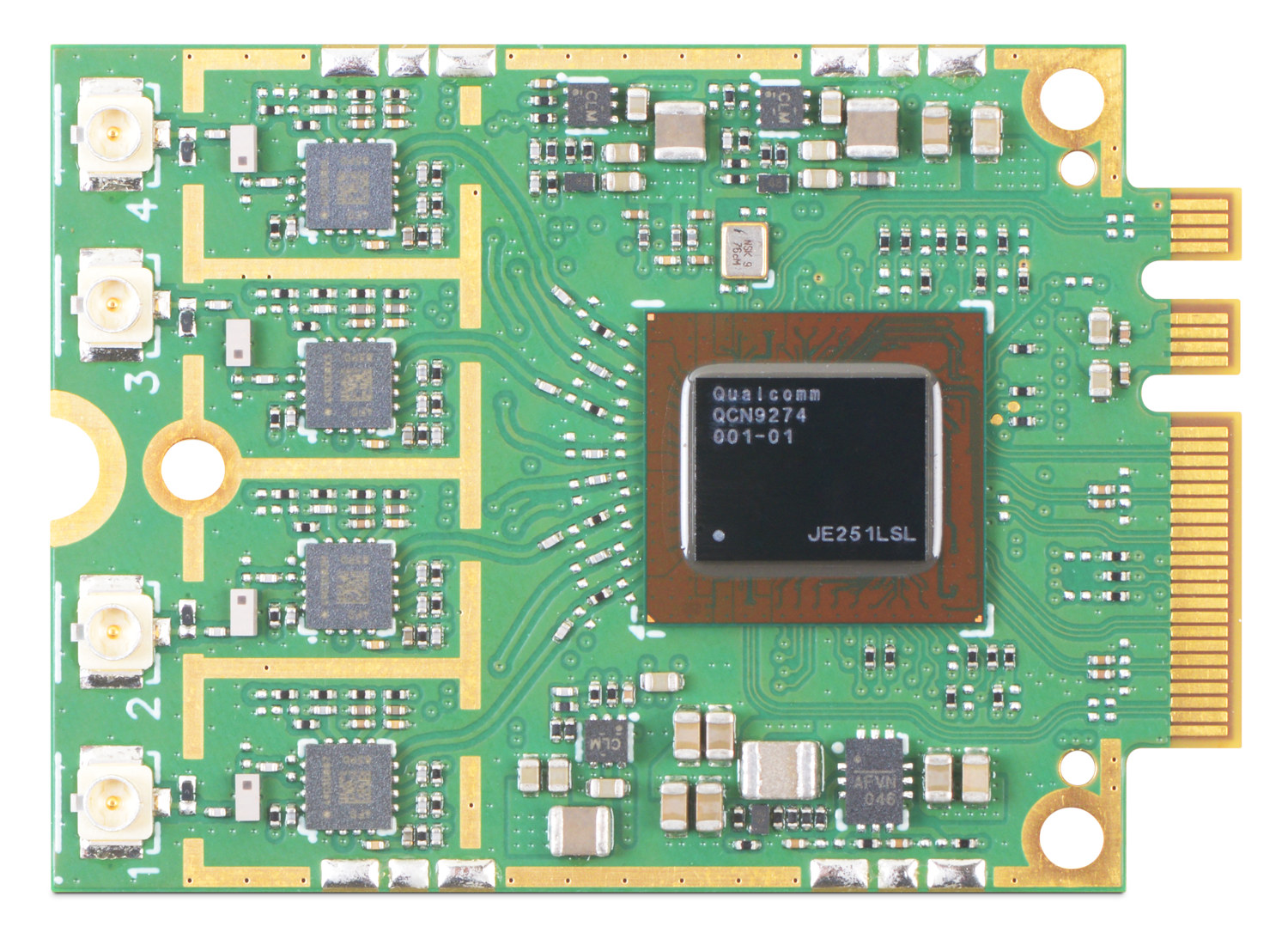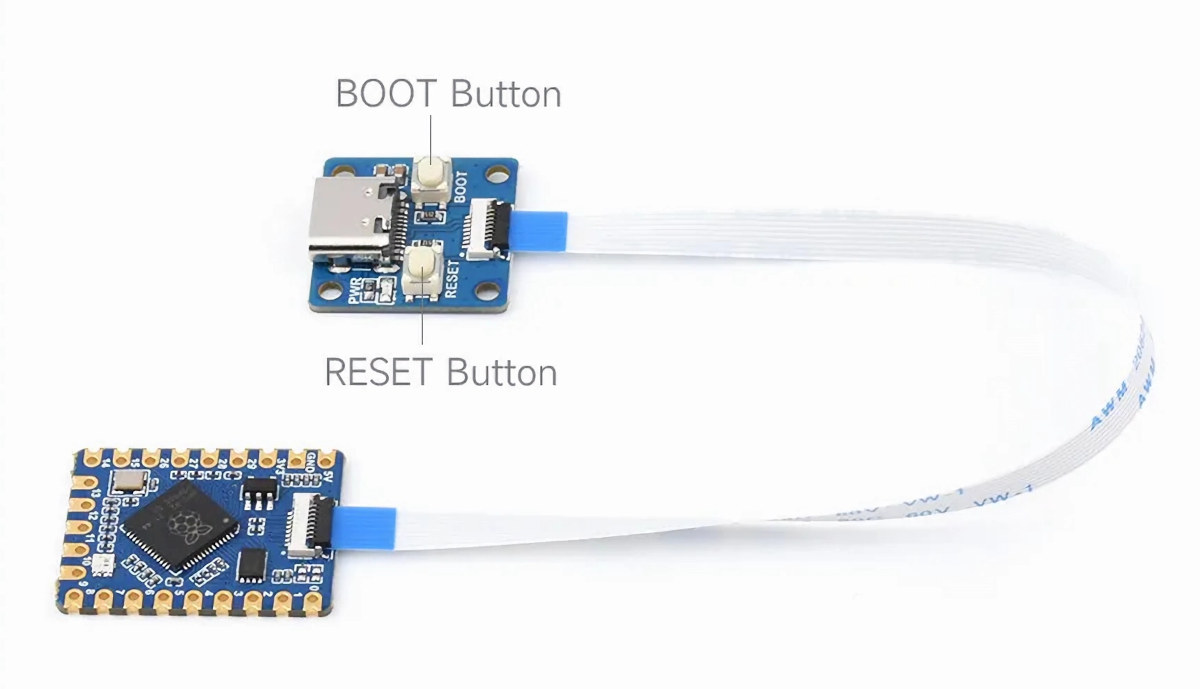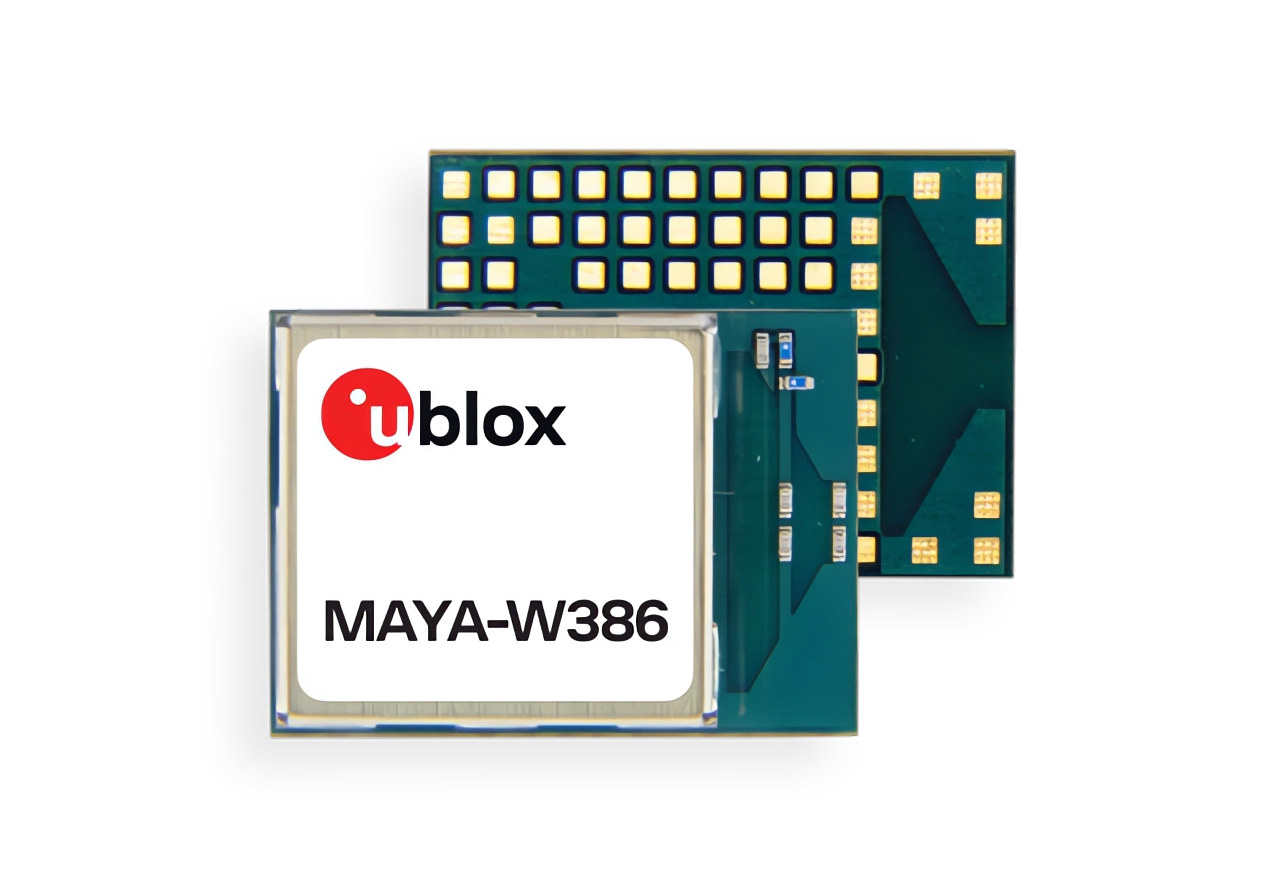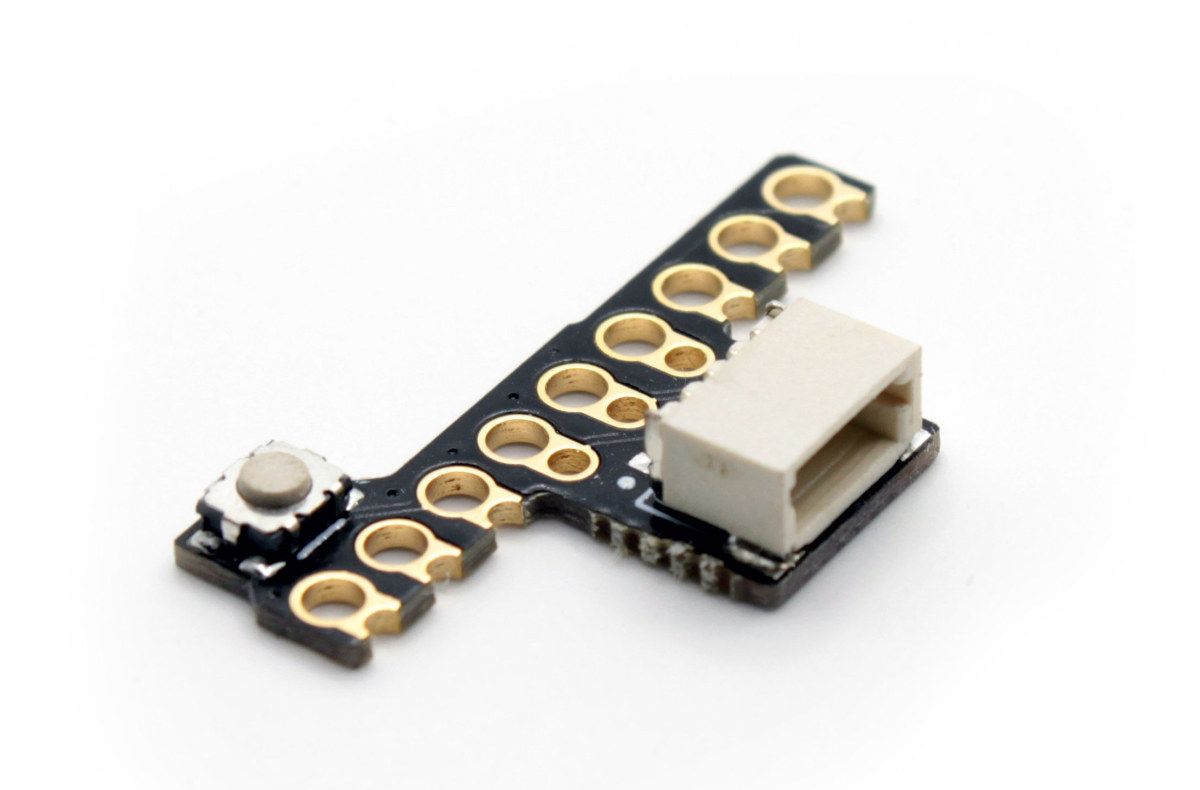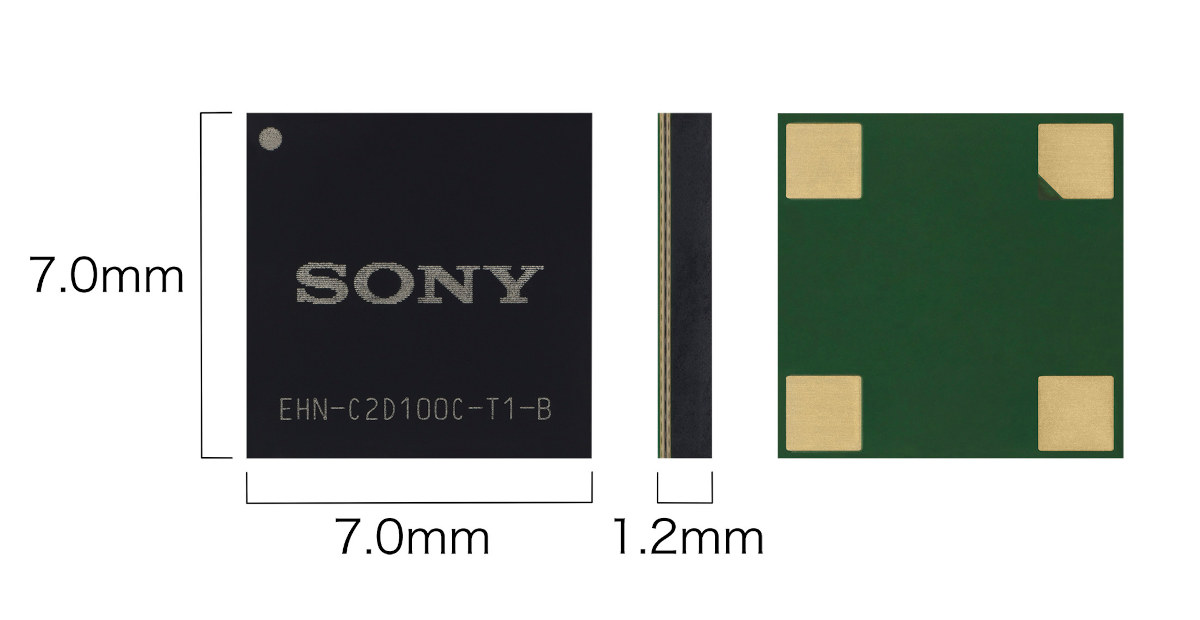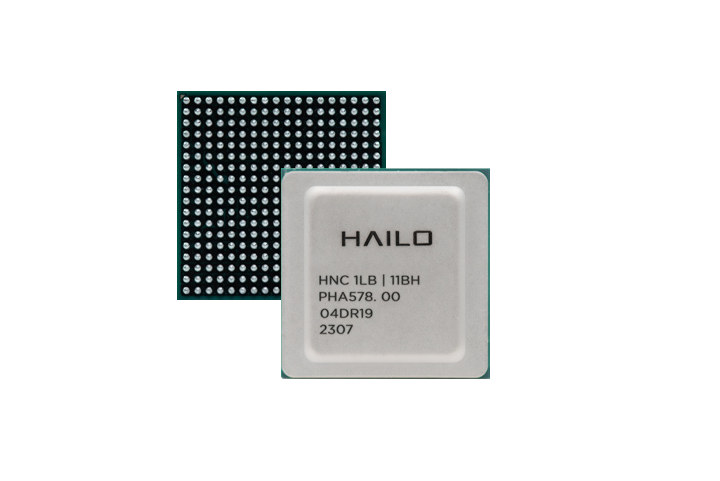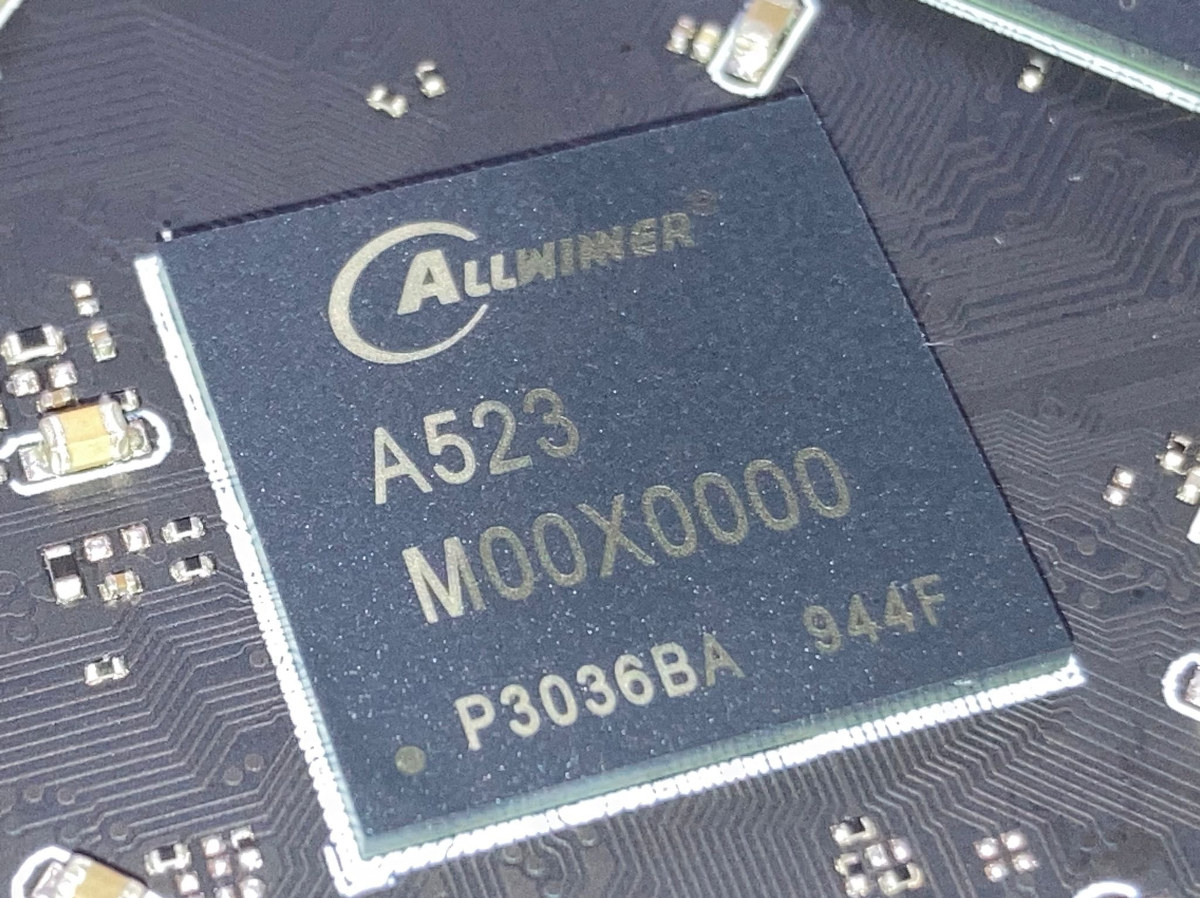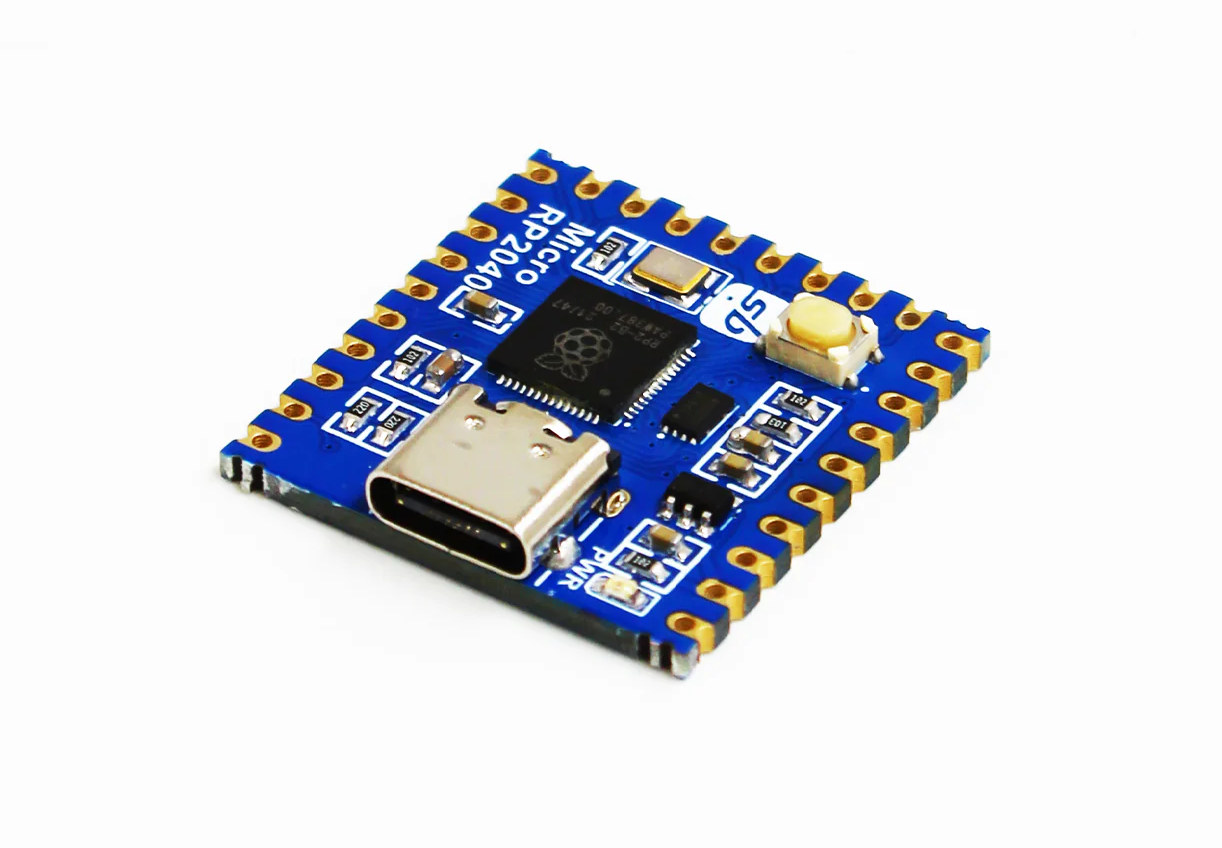8Devices Noni is a family of M.2 A+E-Key WiFi 7 modules built on the QCN9274/QCN6274 chipsets, delivering up to 11 Gbps link rate in 4×4 MIMO or split 2×2 + 2×2 configurations, and supporting FirmUX embedded Linux OS. The Noni modules support Multi-Link Operation (MLO) for simultaneous communication on different frequencies and adaptive interference puncturing in order to maintain performance in various environments and the QCN9274-based variants also support advanced features such as Provisioned Multi-Link, Dense deployment, and Location and RF sensing. 8devices Noni specifications: All the Noni modules support a 2-lane PCIe Gen 3 interface connection to the host device. 8devices Noni modules support the FirmUX embedded Linux platform that provides developers a choice between fully open-source or proprietary Qualcomm drivers. The OS enables WPA3 security, comes with a responsive UI dashboard, supports Wireguard VPN, and the company claims up to 34 percent improvement over OpenWrt on the earlier […]
Tiny Raspberry Pi RP2040 module connects to USB-C + buttons board via FPC connector
Waveshare RP2040-Tiny is another tiny Raspberry Pi RP2040 module that joins others like Pimoroni Tiny 2040, DFRobot Beetle RP2020, or Solder Party RP2040 Stamp, but with a twist as the solderable module features an FPC connector in order to optionally connect a separate board with a USB-C port as well as Boot and Reset buttons. This design enables the convenience of having a USB-C port for power and programming, plus the Reset and Boot buttons during firmware development, and developers can only keep the tiny and ultrathin module when integrating it into a project or product. Alternatively, there may be designs that benefit from having the USB-C port located further away from the main module with all I/Os, and it can also facilitate troubleshooting when the product is already integrated into a product. Waveshare RP2040-Tiny specifications: MCU – Raspberry Pi RP2040 dual-core Cortex-M0+ microcontroller @ up to 133Mhz with 264kB […]
u-blox MAYA-W3 industrial wireless module supports WiFi 6/6E and Bluetooth 5.4 with LE Audio
We’ve already covered two IoT-focused WiFi 6 and Bluetooth LE chips last week with Synaptics SYN43711 chipset and Gigadevice GD32VW553 RISC-V WiSoC, but there’s more, and u-blox has recently introduced the MAYA-W3 WiFi 6/6E and Bluetooth 5.4 module with LE Audio support and designed for industrial applications. It follows the MAYA-W2 industrial IoT module with NXP iW611/iW612 SoC introduced last year. The MAYA-W3 module offers some flexibility as it’s designed on the upcoming Infineon AIROC CYW5551x WiFi 6E and Bluetooth 5.4 chip family supporting 2.4 GHz only (CYW55511), 2.4 GHz and 5 GHz (CYW55512), and a 2.4 GHz, 5 GHz, and 6 GHz with the tri-band CYW55512 chipset. u-blox also provides three antenna options for each model with two U.FL connectors, two antenna pin connectors, or an embedded PCB antenna. u-Blox MAYA-W3 specifications: Chipset – Infineon AIROC CYW5551x CYW55511 for 2.4 GHz WiFi 6 CYW55512 for 2.4 and 5 GHz […]
Pico QwiicReset board adds Reset button and Qwiic connector to Raspberry Pi Pico
Pico QwiicReset is a tiny add-on board for the Raspberry Pi Pico that adds a Reset button as well as the Qwicc connector to more easily connect I2C modules to the popular MCU board. The lack of a Reset button on the Raspberry Pi Pico has always been an issue since the reset pin is used to flash the firmware, so people have tried various ways to add a Reset button to the Pi Pico board. The Pico QwiicReset is like an extension of the Pimoroni “Captain Resetti” button with an extra Qwiic connector. The Pico QwiicReset board is shown soldered to a Raspberry Pi Pico board above, but it’s also compatible with the Raspberry Pi Pico W and it works with or without headers soldered to the board. But you may noticed the Debug header is partially covered on Pico W, which means the add-on board cannot be used […]
Sony energy harvesting module generates power from electromagnetic wave noise
Sony Semiconductor Solutions Corporation (SSS) has developed an energy harvesting module that uses electromagnetic wave noise energy to power IoT devices. The new module leverages Sony’s tuner development process to generate power from electromagnetic wave noise from robots inside factories, monitors and lighting in offices, monitors and TVs in stores and homes, etc. in order to provide a stable power supply needed to run low-power IoT sensors and communications equipment. The tiny 7×7 mm module uses the metal parts of electronic devices that serve as the source of electromagnetic wave noise as part of an antenna and employs a rectifier circuit in order to convert electromagnetic wave noise in a range of several Hz to 100 MHz into electrical energy and supply power to low-power consumption IoT sensors and communications equipment or to charge batteries. The module harvests energy from electronic equipment that generates a significant amount of electromagnetic wave […]
Hailo-8L 13 TOPS AI accelerator targets entry-level edge devices
Hailo introduced the Hailo-8 AI accelerator offering up to 26 TOPS in 2020, and we’ve found it integrated into many designs since then. The company has now launched a cost-down version with the Hailo-8L AI accelerator delivering up to 13 TOPS for more cost-sensitive entry-level edge devices, or workloads that do not require the more powerful Hailo-8. Hailo says the Hailo-8L offers low-latency, high-efficiency processing, and is capable of handling pipelines with multiple real-time streams and concurrent processing of multiple models and AI tasks. The new Hailo-8L is compatible with the Hailo-8 and relies on the same Hailo-8 software suite, so they could be integrated into existing designs for cost savings. Hailo-8L key features and specifications: 13 Tera-Operations Per Second (TOPS) Real-time, low latency & high-efficiency AI inferencing on edge devices No external memory required Scalable with simultaneous processing of multi-streams & multi-models Typical power consumption – 1.5W Commercial & […]
Allwinner A523 octa-core Cortex-A55 processor to show up in tablets, SBCs
Allwinner A523 is an octa-core Cortex-A55 processor clocked at up to 1.4/1.8GHz in big.LITTLE (DynamIQ) configuration and mainly designed for tablets with multiple display interfaces such as two 4-lane MIPI DSPI interfaces, two MIPI CSI camera interfaces, a Mali-G57 GPU, and more. But the block diagram below also shows two Gigabit Ethernet (GMAC) interfaces and HDMI 2.0 output among other interfaces meaning it will likely be used in Smart Home products as the Allwinner R828/MR828, and possibly automotive products as the Allwinner T527. I first discovered the Allwinner A523 last March via a tweet by 柚木 鉉 (GLGH_), but there was little information at that time. We now have further details about the processor and upcoming products such as the Teclast P26T, and a potential Allwinner A523 single board computer or module. Allwinner A523 preliminary specifications: CPU Application – Octa-core Arm Cortex-A55 @ in big.LITTLE configuration with four cores @ […]
Micro RP2040 is a tiny Raspberry Pi RP2040 module with a USB Type-C port, 28 castellated & through holes
SB Components’ Micro RP2040 is a tiny module based on the Raspberry Pi RP2040 Arm microcontroller with up to 23 GPIOs and a USB Type-C port for easy powering and programming. Ever since the Raspberry Pi RP2040 dual-core Arm Cortex-M0+ microcontroller was released, companies have been making tiny modules based on it. Some come with a USB Type-C port such as the Pimoroni Tiny 2040 and the Adafruit QT Py RP2040 boards, while others focused on providing a smaller form factor for soldering only with design such as the RP2040 Stamp or the minuscule 12x12mm Femto module. The Micro RP2040 module comes with a USB-C port and more I/Os than competing modules thanks to a slightly larger 25 x 24.95mm design. Micro RP2040 specifications: MCU – Raspberry Pi RP2040 dual-core Cortex-M0+ microcontroller @ up to 133 MHz with 264kB of SRAM Storage – 2MB QSPI flash USB – USB Type-C […]


